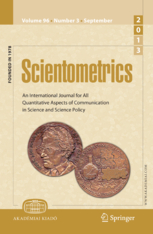 Horta, H. (2018). The declining scientific wealth of Hong Kong and Singapore. Scientometrics, 117(1): 427-447.
Horta, H. (2018). The declining scientific wealth of Hong Kong and Singapore. Scientometrics, 117(1): 427-447.
At a time when the knowledge race is at its most intense, the scientific wealth of nations is increasingly relevant to ensure the preparedness and competitiveness of societies in a globalised, increasingly uncertain and integrated global knowledge economy. Scientific wealth also helps nations become resilient in the face of ever-growing knowledge and technological shifts. Hong Kong and Singapore, which are multicultural, internationalised and capitalist territories, have been part of globalisation since its beginning, and they are renowned for their vibrant research communities. However, given that East Asia and Southeast Asia are becoming worldwide centres of research power and are facing increasing regional competitiveness, a persistent question is whether the two territories are keeping up with the competition and are key players in the global knowledge race. Analysis of their knowledge creation and worldwide impact over the past 20 years indicates that these two territories are struggling to keep up and are showing declining competitiveness. This loss of competitiveness, including in major thematic areas such as Decision Sciences and Business where they had substantial leads in the past, is making these territories indistinguishable from others as knowledge centres, and they are thus potentially less visible and less appealing to potential knowledge related investors. As they continue to be highly internationalised, the main reason behind these trends seems to be related to critical underinvestment in their research systems.
